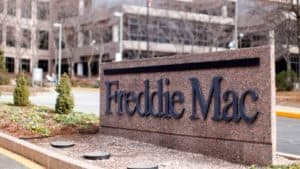Freddie Mac Securitization Could Help the Affordable Housing Challenge

“That means lower transaction costs and interest rates for long-term financing,” says David Leopold, vice president of targeted affordable sales and investments for Freddie Mac. “Because the securitization was so successful, we will be able to drive down costs.”
Freddie Mac’s securitization program could also have implications for Freddie’s lending to other kinds of apartment properties. “Will this open the door to doing the same thing with other quirky assets?” says Leopold. “It demonstrates that we continue to innovate.”
Some welcome relief for affordable housing projects
Every little bit helps for affordable housing developments, which have been hit with a double whallop of bad news this year. Investors are paying less to buy low-income housing tax credits (LIHTCs), which are the most important source of financing for new affordable housing projects. Tax credits suddenly became worth less to investors as a comprehensive reform of the U.S. tax code seemed more likely to be completed after the November election.
At the same time, long-term interest rates began to rise, along with the cost of many construction materials, digging a hole in the construction budgets of new projects. Projects that rely on tax-exempt bond financing and the 4 percent LIHTCs have been hit especially hard, because those tax credits provide a thinner stream of subsidy.
The deal
Freddie Mac’s securitization was its first securitization of tax-exempt loans made by state or local housing agencies and secured by affordable rental housing.
The inaugural issuance includes approximately $292 million in ML Certificates backed by tax-exempt loans on 25 affordable housing properties and approximately $18.5 million in ML Certificates backed by taxable subordinate loans on three of the same properties. Both series of ML Certificates are expected to settle on or about June 29, 2017.
The bond sold well. The $292 million issuance scored a yield of 50 basis points over the one-month LIBOR rate.
“Eight years after our first modern K-Deal, Freddie Mac Multifamily continues to expand our securitization series and offload risk to private investors,” says Robert Koontz, vice president of multifamily capital markets for Freddie Mac. “Most importantly, we are bringing increased liquidity to the affordable housing market, a key focus that is at the heart of our mission.”
Freddie Mac remains committed to its affordable housing lending business, which is not constrained by the limits set on its lending by the Federal Housing Finance Agency.
This year, Freddie Mac plan to lend the same amount as it did in 2016—about $6 billion—through its targeted affordable programs to apartment properties that have formal restrictions on the rents of at least some of their apartments.
“We are aggressively seeking affordable housing deals,” says Leopold.
Source: nreionline.com















 Accessibility
Accessibility